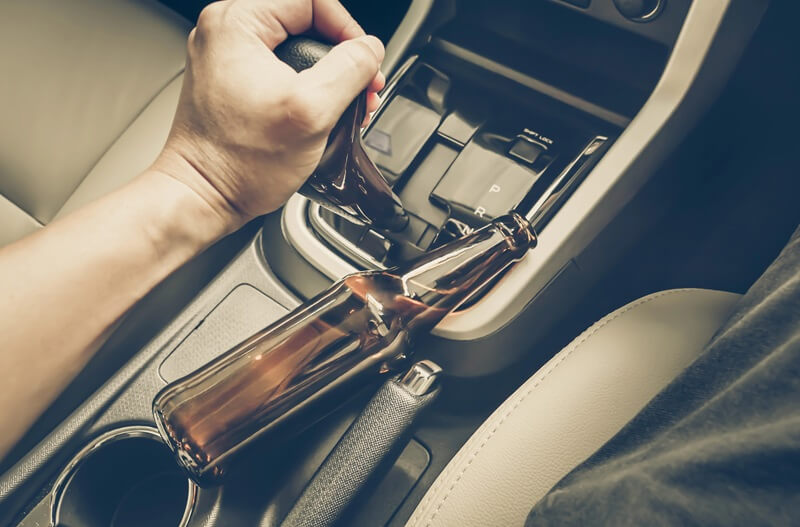DUI Lawyer In Manassas Navigates Field Sobriety Tests
DUI Lawyer In Manassas Navigates Field Sobriety Tests
Facing a DUI charge can feel like an uphill battle, especially when field sobriety tests are involved. A DUI lawyer in Manassas understands the importance of defending your rights during this stressful process. These tests, while typical, often leave drivers feeling uncertain and vulnerable.
Imagine standing on one leg by the side of a busy road, judged not just by balance but by your composure under pressure. That’s the reality many drivers face during sobriety tests. This article sheds light on how field sobriety tests work, the accused’s rights, and defense strategies.

Understanding Field Sobriety Tests In Virginia
Field sobriety tests are designed to evaluate physical coordination and cognitive functions. Police officers use them to identify signs of intoxication. However, these tests rely on subjective judgment, leading to flawed outcomes.
What Is The Purpose Of The Test?
These tests aim to detect impairment through tasks requiring divided attention, such as balancing or following instructions. Common assessments include:
- Horizontal Gaze Nystagmus (HGN): Observing involuntary eye movements.
- Walk-and-Turn: Walking in a straight line and turning precisely.
- One-Leg Stand: Standing on one leg without swaying or using arms for balance.
Each test seems simple but can be difficult for even sober individuals under certain conditions. Standardized field sobriety tests are critical tools for officers to evaluate impairment. But how are these tests conducted, and what factors influence their administration?
How Are The Tests Conducted?
Before starting, the officer provides detailed instructions for each test. Drivers are expected to listen carefully and follow them precisely. For example, during the Walk-and-Turn test, individuals must take nine heel-to-toe steps in a straight line, turn on one foot, and return the same way. The officer observes balance and the ability to follow instructions.
In the One-Leg Stand, drivers must stand on one leg for about 30 seconds without swaying, hopping, or putting the raised foot down. The officer watches for signs of imbalance or physical difficulty. The Horizontal Gaze Nystagmus (HGN) test requires drivers to track an object with their eyes. Involuntary eye jerking, a potential indicator of impairment, is noted.
The setting of these tests often adds challenges. Roadsides may be uneven, poorly lit, or noisy, creating distractions. Physical conditions, such as a prior injury or natural lack of balance, can also affect performance. An officer’s subjective interpretation of results further complicates matters, potentially leading to inaccurate assessments.
Despite their widespread use, field sobriety tests are not without flaws. Challenges raise essential questions about the accuracy and fairness of these evaluations. Understanding these limitations is necessary to grasp the broader implications of relying on field sobriety tests in legal and enforcement contexts.
Limitations & Challenges Of Field Sobriety Tests
Field sobriety tests are often portrayed as reliable indicators of impairment, but they have significant limitations that can unfairly affect the accused. These challenges arise from external factors and the subjective nature of officer observations. Understanding these shortcomings is critical to building a solid defense.
Environmental Factors
Field sobriety tests are typically conducted on the roadside, where conditions are rarely ideal. Uneven pavement, poor lighting, heavy traffic, or adverse weather such as rain or wind can make even the most coordinated individuals appear unsteady.
Imagine trying to balance on one leg while cold gusts of wind push against you. This doesn’t reflect intoxication but rather the difficulty of performing under harsh conditions.
Physical & Medical Conditions
Many physical or medical issues can mimic the signs of impairment. Injuries like sprained ankles, arthritis, or chronic back pain can make tests such as the Walk-and-Turn or One-Leg Stand nearly impossible. Neurological conditions, inner ear issues, or natural lack of balance may also lead to poor performance.
Subjective Officer Judgments
Field sobriety tests rely heavily on the officer’s interpretation of the results. Unlike a breathalyzer or blood test that provides measurable data, these tests involve subjective assessments. An officer might perceive hesitation, a slight wobble, or nervousness as signs of intoxication, even though these behaviors are normal under stress.
Field sobriety tests are far from flawless, often placing drivers in unfair situations. Recognizing these challenges provides a foundation for asserting your rights. A Manassas DWI lawyer can help you uphold those legal protections and privileges during this challenging time.
Your Legal Rights During The Test
Understanding your legal rights during field sobriety tests is essential to protect yourself from unfair treatment or misinterpretation. Knowing these rights allows you to make informed decisions in this high-pressure situation.
Refuse Field Sobriety Tests
In Virginia, drivers are not legally required to submit to field sobriety tests. Refusing these tests does not carry the same automatic penalties as refusing a breathalyzer or blood test. However, officers may justify your refusal to arrest you or pursue charges.
It’s essential to weigh the potential consequences of refusal. While refusing may limit evidence against you, it could also influence the officer’s judgment and lead to an arrest based on other factors. It may include observed driving behavior or physical appearance.
Protection Against Self-Incrimination
The Fifth Amendment protects individuals from self-incrimination during any legal process, including field sobriety tests. While officers may attempt to engage you in conversation or ask incriminating questions during the stop, you have the right to remain silent.
Physical performance during a field sobriety test can also contribute to self-incrimination. Stumbling, losing balance, or failing to follow instructions could be interpreted as signs of impairment. Refusing to take these tests and invoking your right to silence minimizes the risk of providing evidence that could harm your case.
Legal Counsel
You do not have the right to legal counsel during the field sobriety test itself. However, you have the right to an attorney before undergoing any chemical tests or being arrested. Seeking legal advice at the earliest opportunity ensures that your rights are fully protected throughout the legal process.
Having an experienced DUI lawyer is crucial to navigating the complexities of your case. They can help safeguard your rights, challenge potential errors in the field sobriety tests, and provide strategic guidance for your drunk driving defense.
DUI Lawyer In Manassas Prepares Your Defense
When accused of DUI, a strong defense strategy can challenge the validity of field sobriety test results. Building defenses involves understanding the legal framework, gathering evidence, and working with a criminal defense attorney in Manassas to identify flaws in the prosecution’s case.
Analyzing The Process
A Manassas DWI lawyer plays a vital role in scrutinizing the procedures and outcomes of field sobriety tests. They assess whether the tests were conducted according to proper standards and whether the officer was adequately trained.
Attorneys also explore whether environmental factors, such as uneven ground or poor lighting, contributed to the perceived failure. Their thorough understanding of these tests allows them to expose weaknesses in the prosecution’s argument, providing an opportunity to reduce or dismiss charges.
Gathering Evidence To Support Your Case
Compiling evidence is critical to defending against field sobriety test results. A comprehensive defense often includes:
- Dashcam Or Bodycam Footage: Video evidence can highlight inconsistencies in test administration or reveal challenging environmental conditions.
- Medical Records: Documents that prove pre-existing conditions, injuries, or impairments that could affect test performance.
- Witness Testimony: Statements from passengers or bystanders confirming the conditions at the time of the stop.
For example, if the footage shows you performing the tests in adverse weather or distracted by loud traffic, this could undermine the officer’s conclusions. Similarly, medical records proving balance issues unrelated to alcohol consumption can cast doubt on the results.
Building A Strong Legal Defense
A robust defense often focuses on procedural errors and external factors that impact test outcomes. Some strategies include:
- Highlighting unclear or contradictory instructions from the officer.
- Demonstrating that environmental conditions, such as uneven pavement or bad weather, made the tests unreliable.
- Presenting alternative explanations for observed behaviors, like medical conditions or natural nervousness.
Preparing for defense against field sobriety tests requires thorough analysis, strategic evidence gathering, and compelling legal arguments. With the right approach, it’s possible to challenge unfair assessments and secure a better outcome. A reputable law firm, like The Irving Law Firm, provides tailored strategies to help individuals facing DUI charges.
The Irving Law Firm Can Help You

At The Irving Law Firm, we know how overwhelming it can feel to face DUI charges, especially when field sobriety tests are involved. Our team is committed to providing clear, personalized guidance at every stage of your case. We focus on protecting your rights and handling every defense aspect carefully.
Field sobriety tests can be flawed, and we meticulously review every detail of their administration. Were the instructions clear? Was the testing environment suitable? Did the officer follow proper procedures? These are just some questions we ask as we build a defense tailored to your circumstances.
We aim to uncover inconsistencies or errors in how the tests were conducted. By challenging the reliability of the results, we strive to weaken the prosecution’s case and protect you from unjust penalties. We take the time to listen, understand your concerns, and develop a strategy that prioritizes your future.
Let us guide you through this challenging time with confidence and clarity. Contact The Irving Law Firm today for a consultation. Together, we’ll take the first step toward resolving your DUI charges and protecting your rights.
Summary
Field sobriety tests are a challenging aspect of any DUI case, but they don’t have to define your outcome. Understanding the tests, knowing your rights, and preparing a robust defense are crucial to achieving a fair resolution.
The Irving Law Firm offers the legal support you need to challenge test results effectively. Our detailed approach provides peace of mind while striving for the best possible outcome.




